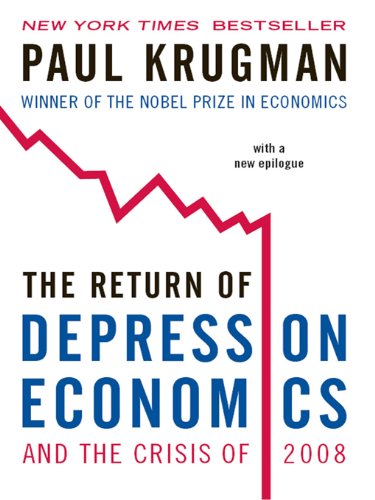Climate Leviathan: Towards a Political Theory of Our Planetary Future, Geoff Mann and Joel Wainwright, Verso Books, February 2018, pp. 224, $35.99, ISBN 978 – 1786634290
Increasingly, our hopes for saving the planet from destruction are placed in international conferences; gatherings of heads of states and their delegates aimed at uniting the world in resolve. One only needs to look at the growing and loud endorsements of the Conference of Parties, held under the auspices of the United Nations Framework Conference on Climate Change; the marches held nearby the event spaces and the pressure activists put on politicians to make compromises and come to an agreement. When the US President Donald Trump pulled out of the 2015 Paris Agreement the reactions were naturally forthcoming from the self-righteous band of climate defenders, who proclaim affinity to the environment while simultaneously defending capitalist interests that undermine it.
The Globe and Mail announced that “Trump and his merry band of climate denialists have long promised to spare no effort to scupper their country’s environmental policy”, while the Toronto Star called it “an act of sabotage”. Bloomberg saw the act as a foolish endeavor by a businessman, one that will cost his business dearly, while the New York Times ran a headline “Our Disgraceful Exist From the Paris Accord”, opining that only future generations will be able to tell the incredible short-sightedness of the decision, while they struggle to stay afloat amidst the rising seas. Al Gore went so far as to prophesize that the agreement signals the end of the fossil fuel era.
These reactions reveal incredible short-sightedness on the part of the mainstream media and mainstream environmentalists. Of course that Donald Trump’s denial of climate change is laughable and should frankly be impeachable, but likewise, are we right in so easily conflating environmental accords with environmental protection? The Paris Agreement is an agreement about a future agreement. There is nothing concrete in the deal and the countries are simply urged to do more over a long period of time. This allows for any potential transition to drag on, while the world burns. Yet, we remain hopeful. Global environmental compacts are our only hope of achieving any meaningful protection, we are told and we are led to believe.
Geoff Mann’s and Joel Wainwright’s book, that was full 7 years in the making, comes amidst this predicament. It follows a renewed interest in climate change in the field of political science, acknowledging the work done by the first generation eco-socialists, such as James O’Connor, and those that followed, John Bellamy Foster and Andreas Malm. However, it attempts to extend the discussion further by positing that its goal is to deal with the analysis of the consequences of capitalism’s stranglehold on nature. It seeks to identify the political repercussions of capitalist climate change.
Mann and Wainwright posit that the current crisis must be viewed historically, as a necessary conjuncture, which is nothing but a product of contingency. In other words, the current crisis is a necessary product of the laws of capitalist development. As capitalist development is in constant flux, Mann and Wainwright attempt to capture the movement that is still in its formation and develop a theory of its development and what form it might take. As they state, they “follow Hobbes’s efforts to understand a form of power or government that is not yet consolidated but which exists in potentia” (p.18). They state that the two conditions will determine the nature of the future political order are whether the prevailing economic formation will continue to be capitalist or not and whether a coherent planetary sovereign will emerge. Sovereign, according to theirs and Schmittian understanding is that realm of pure decision and identification of friend and enemy. Since climate change knows no boundaries, sovereign capable of dealing with it will necessarily be global, or planetary, in nature, capable of exerting power and declaring ‘the state of emergency’.
From his two conditions that will shape the coming political economic order,
Mann and Wainwright develop a simple matrix of possible scenarios.
These four potential responses are distinguished by the hegemony of a
particular bloc. The top half of the box represents the future where capitalism
remains the dominant force of organizing societies, while the bottom would be
shaped by non-capitalist forms. Planetary sovereignty encompasses the globe,
while anti-planetary sovereignty encompasses reactionary nationalism in its
Behemoth form, backed by fossil fuel interests, toxic nationalism, and
evangelicalism, while thesis X recasts Benjamin’s “angel of history”.
Mann and Wainwright contend that Climate Leviathan is in the making. The faith in Paris Agreement would seem to suggest so, indeed. Climate Leviathan is a “planetary authority, armed with democratic legitimacy, a binding technical authority on scientific issues, and a panopticon-like capacity to monitor the vital granular elements of our emerging world” (p.30). When it comes to climate, as the voices from the world over affirmed in their condemnation of Trump, the Leviathan will decide. Given that the Leviathan must transcend the territoriality of the nation-state while simultaneously ensuring the support of the territorial state, Mann and Wainwright assume that it will take one of two forms: either a variety of authoritarian territorial sovereignty (Climate Mao) or the perpetuation of the current system of Western state dominance over the poorer nations. The authors suspect the latter future. Climate Leviathan is marked by liberal proceduralism, while Climate Mao by firm authoritarianism, such as the one exhibited in China in preparation of the Olympic Games, when the government exercised its power over determining features of everyday life such as shutting down factories, and banning cars from roads in a bid to better the air quality for the incoming athletes. Afterward, the chimney of the world may continue to smoke.
Climate Leviathan calls for the politics of adaptation. This stems from the Assessment Reports issued by the UNFCCC Working Groups composed of hundreds of scientists tasked with reviewing the current scientific literature on climate change. These reports take for granted the stability and timelessness of the current economic system and understand as the necessity for adaptation our ability to live as we do now in a climate changed world. As Mann and Wainwright state, this mode of thinking lends itself to functionalism or the belief that the current crisis arose out of necessity, which runs counter to their call for ‘radical historicism’. Or, there is nothing necessary in capitalism’s war on the environment, it is a product of specific modes of organizing our socio-economic lives that are supported by policies enacted and enforced by governments, backed by corporations with profits in mind.
Adaptation must be brought to life in the realm of the political, which the authors define as the realm of the dominant and the dominated. The political is the ground out of which this relationship arises. Climate Leviathan is predicated upon the reproduction of this form of the political. While not explicitly mentioning it, Mann and Wainwright conceptualize the political as the forces and relations of production under capitalism. The apparent necessity to obscure and mystify the concept of the political with defining it as something that does not blur the argument the authors are trying to make.
As the Leviathan arises out of capitalist modes and relations of production, its natural response to the climate crisis is, therefore, more of the same in the form of Green Capitalism. However, the consequences of that, which is what Mann and Wainwright are ultimately concerned with, may appear as either continued US hegemony or competition between capitalist states in the global economy. Surprisingly, what Mann and Wainwright fail to consider is the notion of the historical capitalist world system as developed by Immanuel Wallerstein, which claims that the world is connected by a network of exchange relationships which divide the world into the core, semi-periphery, and periphery. Rather than posit single nation state dominance against competing nation state order, we can conceive of Climate Leviathan as the continuous reworking of international relationships to reproduce the dominant forces and relations of productions that regulate the current economic exchanges between the North, defined as the core, and the South, the periphery. Rather than being inherent to a state, Climate Leviathan could be better conceived of as a process of capitalist regulation which sees the state as a politico-juridical entity overdetermined by capital. The state in this scenario does not matter as much as the socio-economic relationship it embodies. In this sense, Leviathan and Behemoth can be the same thing. Planetary and oppressive. When the planetary conferences ostensibly agree to halt global warming at 2 degrees Celsius, they perform the function of both the Leviathan and Behemoth. Leviathan in that its decisions are planetary and capitalist in nature, and Behemothic in that they declare a state of emergency in such a way so as to ensure their protection at the behest of other countries, such as the low-lying Maldives or Bangladesh.
What Mann and Wainwright call for in response to the Leviathan is Climate X. Climate X is everything Climate Leviathan is not, a world that defeated capitalism. It hinges on three principles: equality, inclusion, and dignity for all and a world of many worlds or solidarity. Climate X is a fluid, unnamed and poorly defined concept and one is hard pressed to see how Climate X would contribute to solving the climate crisis. Moreover, Mann and Wainwright’s analysis of the typology of possible state formations hinges on the necessary stabilization of climate change as the ultimate goal of the socio-economic formation. If Climate X defines itself as being in opposition to Climate Leviathan, what happens to Climate X once the Leviathan is overcome? What does X constitute other than the negation of the Leviathan? X is truly ambiguous, it “must be able to become and include what it needs to be to point us toward a solution” (p.197) General strike? Yes, by all means. Anything else? Yes, anything goes. X does not point to a clear path forward.
Perhaps X is the last thing we need now. We know where the answer lies, and it is not an unknown, it is not a mystified X. Rather it is a concentrated struggle against the system that ravages our planet and its inhabitants. It is a struggle for communism.




